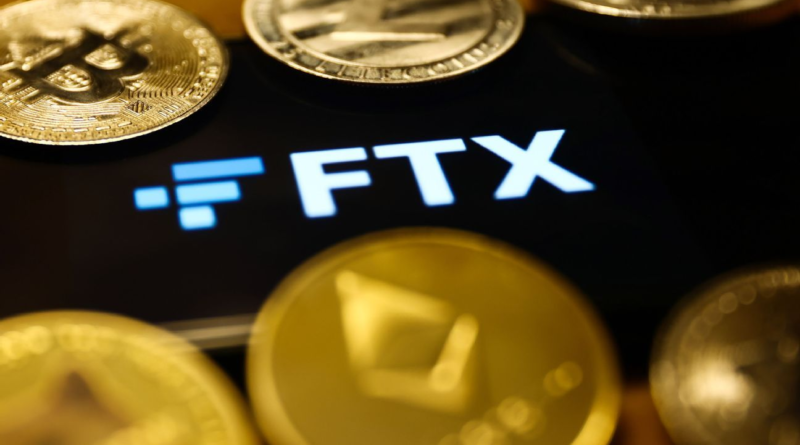Why Super Bowl LVII won't be another 'Crypto Bowl'
A Crypto.com commercial during last year’s Super Bowl featured LeBron James and a 2003 version of himself sitting down for a heart-to-heart, with the younger James asking the elder: Is the hype too much? Am I ready? To which the elder replies: I can’t tell you everything, but if you want to make history, you’ve got to call your own shots.
The commercial, along with those from FTX (Larry David as a costumed pitch man), Coinbase (floating QR code) and eToro, marked notable investments by cryptocurrency companies seeking to go mainstream and join the big, traditional Super Bowl ad categories, leading some industry watchers to refer to last year’s game as the “Crypto Bowl.”
The crypto ads were hot. This year, not so much.
Since the launch of Bitcoin in 2009, the industry has spawned thousands of different cryptocurrencies that can be purchased and traded in exchanges like Crypto.com and Coinbase. They usually have a high risk and high reward. In November 2021, the cryptocurrency market hit its peak and was briefly valued at more than $3 trillion, ushering in what would become crypto’s golden age in early 2022.
Companies latched onto sports as one way to reach mainstream consumers, buying naming rights to sports venues, forging sponsorship deals with leagues and celebrities and star athletes like Aaron Rodgers, Joel Embiid, Naomi Osaka and Tom Brady — and spending upwards of $6.5 million for a 30-second ad seeking to reach more than 100 million viewers of the Super Bowl.
But this past year has seen crypto come crashing down, with some companies awash in bankruptcy, lawsuits or investigations, with critics saying some celebrity boosters led investors without highlighting potential risks. As a result, the commercials set for Super Bowl LVII between the Philadelphia Eagles and Kansas City Chiefs, broadcast by Fox on Sunday, won’t be memorable for crypto. Here are some key questions and answers about crypto and its role in Super Bowl LVII‘s commercials.
Why was Super Bowl LVI dubbed the ‘Crypto Bowl’?
Crypto wanted spots in the Super Bowl because the game remains one of the only things in segmented American media consumption that both brings in monster ratings and forces people to watch commercials. Last year’s Super Bowl, which averaged more than 112 million viewers across all platforms on NBC, was the most-watched television show since the Super Bowl five years prior.
iSpot, a company that tests national ads for audience approval, provided ESPN with data related to monthly estimated ad spending for advertisements on national television. In February 2021, when the Tampa Bay Buccaneers beat the Chiefs 31-9 in Super Bowl LV, the aforementioned crypto companies didn’t spend a cent. In January 2022, Crypto.com spent $36.5 million; FTX ($36.7 million); and Coinbase ($31.6 million) followed suit in February. eToro also hit a personal peak at $7.2 million that same month.
With that exposure — and the cost to acquire it — came name recognition for the companies, especially when combined with star power.
“Imagine that person in their late 30s that doesn’t work in tech, doesn’t live in a major city and has heard about crypto a lot … and then they see a Crypto.com ad or an FTX ad … [and they’ll say], ‘I heard of that,'” said Andrew Chang, who spent nearly a decade as the chief operating officer of crypto infrastructure company Paxos.
“So once they’re interested, they’re going to sign up for one of them.”
Fox declined to speak about pricing for specific ads, but a source with knowledge of the ad lineup said the highest-priced spots for Super Bowl LVII will eclipse $7 million for 30 seconds. Since 2000, the average price of a Super Bowl ad slot has increased by 250%. Fox officially sold all of its ad space in the last week of January, the source said.
“It’s a big, big undertaking,” said Larry Mann, a partner at rEvolution, a global sports marketing and media agency. “And it’s expensive. It’s all that goes into it beyond just the spot. It’s the social campaign. All of these brands have a whole campaign that probably started two, three weeks ago and will run through the month of February.
“You want to do the Super Bowl right. I mean, to do it right, you’ve got to spend $20 million.”
Just a year ago, the crypto companies had the money. On Christmas 2021, less than two months before the Crypto Bowl, Staples Center in Los Angeles officially was renamed Crypto.com Arena. The company reportedly paid $700 million for the rights. A month later, FTX was valued at $32 billion.
“[Crypto Bowl spending] was ego money,” said Peter Daboll, iSpot’s chief strategy and insights officer, “but it was in line with other ego money.”
What has happened to crypto since the Crypto Bowl?
Lawsuits. Bankruptcies. A lot.
As crypto companies basked in the afterglow of stadium naming rights, superstar endorsements and a frenzy of new customers in early 2022, the rest of the year was a sharp descent into falling prices and liquidity crises.
The public face of this collapse was FTX, one of the largest crypto exchanges, and its founder, Sam Bankman-Fried. The Bahamas-based crypto company filed for bankruptcy in November, with Bankman-Fried indicted by federal prosecutors on eight counts, including fraud and money laundering. His trial is scheduled for Oct. 2.
In his own words: “I f—-d up …”
The celebrity endorsers of FTX’s ad campaigns were not spared either, as customers filed class-action lawsuits.
“Never in my lifetime, and I’ve been around sports sponsorships for over 40 years, have I ever seen a situation where consumers and fans have gone after a sponsor for something like that,” said Jim Kahler, a former Cleveland Cavaliers executive.
Litigation in the cases is ongoing.
What should we expect during the Super Bowl this year?
No crypto — none at all.
Mark Evans, Fox Sports executive vice president of ad sales, told The Associated Press that four crypto advertisers were set to run in Super Bowl LVII. Two of them were “booked and done” and two others were “on the one-yard line,” he told the AP, but FTX’s controversy prevented the deals from being consummated. Mann, whose company works on behalf of brands, said crypto is a nonstarter.
“I basically said, ‘Look, if you sell the crypto category, you’re a fricking superman of sellers,'” he said.
ESPN reached out to the solvent crypto companies that advertised in last year’s Super Bowl. A Coinbase spokesperson said: “While we are incredibly proud of our first national ad, which debuted at last year’s Super Bowl — we won’t be appearing in this year’s game.” And eToro emailed: “eToro had no plans to advertise in this year’s Super Bowl. We’ve always been dynamic in our marketing approach. We’re multichannel with a strong focus on online. We dial up or down specific channels based on many factors including market conditions.” Crypto.com did not immediately respond.
Representatives for James and Brady, perhaps crypto’s two most prominent athlete endorsers, didn’t immediately respond to requests for comment.
In the absence of crypto exuberance at this year’s Super Bowl, the ad lineup is predicted to be a return to traditional brands. Beer giant Anheuser-Busch ended its 33-year-old exclusivity deal with the event and unleashed other brewers like Molson Coors and Heineken onto the big stage. Other familiar names on Sunday’s ad space will be the likes of Pringles, Doritos and Hellmann’s mayonnaise.
“There will be fewer proclamations about the next big, industry-flipping thing,” Atit Shah, chief creative officer, North America, of the ad agency Digitas said in an email, “… a bit more of a lean back on to the classics.”
OK, but what about next year?
To be determined.
While FTX is bankrupt, the ripple effects of the “crypto winter” in 2022 and the general economic downturn also have been felt at the other big exchanges. Many crypto companies have since had layoffs and a significant drop in spending. But crypto has always been a market where “the prices of things have gone up and down repeatedly,” said Kevin Werbach, a professor at The Wharton School at the University of Pennsylvania.
“My guess is [if] we have this conversation 10 years from now, there’ll be two or three key players in the crypto category, and the others will fade into the sunset,” said Kahler, who is director of the sport and entertainment management program at Cleveland State University.
Daboll said crypto could return with a more targeted strategy.
“[They could target] financial investors or the investment community [rather than] going broad reach on something like the Super Bowl,” he said. Daboll also pointed out that Coinbase already rolled out an ad campaign in December, which he said was “universally hated.”
“It wasn’t because people hated crypto,” he said. “It’s because the ad was so terrible.”
iSpot shared likeability ratings and verbatim responses to Super Bowl crypto commercials with ESPN. Coinbase’s QR code spot rated 57% lower than financial ad norms in the previous year. One viewer said, “Terrible ad. I’m not going to work to find out whatever company or product it was for,” while another called the whole thing “preposterous.” FTX’s likeability rating for its Super Bowl spot, aired before the crash, was 5% higher than normal. “Larry David. That is enough!” one response read.
“Sometimes it’s just better to stop talking and let the industry sort out, calm down, market stabilize,” Daboll said, when asked if anyone will ever like crypto commercials in the Super Bowl again, “and then come back in when you’ve got a better story to tell.”




